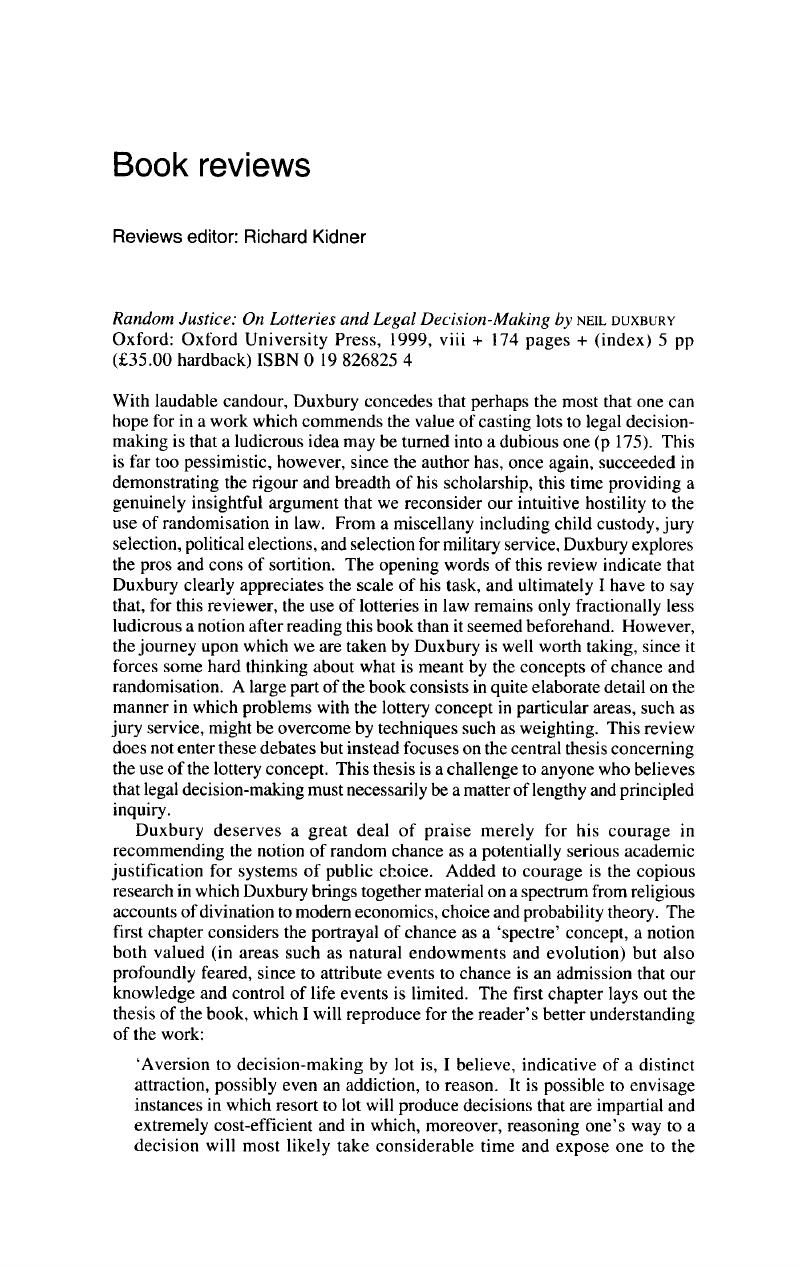No CrossRef data available.
Published online by Cambridge University Press: 02 January 2018

1. See R Rorty ‘The Banality of Pragmatism and the Poetry of Justice’ in M Brint and M Weaver (eds) Pragmatism in Law und Society (Boulder: Westview Press, 1991). For an attempt to defend the integrity of purely descriptive analyses of law, see B Tamanaha Realistic Socio-Legal Theory: Pragmatism and a Social Theory of Law (Oxford: Oxford University Press, 1997). There is also a very useful discussion on the possibility of descriptive arguments in H L A Hart The Concept of Law Oxford: Oxford University Press, 2nd edn, 1994) postscript.
2. Although Duxbury cites Jung, together with a number of Taoist sources in n 14 on p 18, he does not pursue an approach to chance modelled on a Jungian concept of synchronicity (see C G Jung Synchronicity: An Acausal Connecting Principle (London: Routledgz & Kegan Paul, 1972). For tentative arguments in this direction, although not explicitly Jungian, see D Jabbari Reason Cause and Principle in Law: The Normativity of Context’ (1999) 15 OJLS 203 and D Jabbari ‘Radical Particularism: A Natural Law of Context’ (1999) 50(4) NILQ 1.
3. (1924) 1 KB 256.
4. See Duxbury, pp 131–139.
5. An observation of Finnis in his Natural Law and Natural Rights (Oxford: Oxford University Press, 1980) p 161, noted on p 87 of Duxbury.
6. See L Fuller The Morality of hw (New Haven: Yale University Press, 1964).
7. See P Benson ‘The Basis for Excluding Liability for Economic Loss in Tort Law’ in D G Owen (ed) Philosophical Foundations of the Law of Tort (Oxford: Oxford University Press, 1995) p 427.
8. See my ‘Reason, Cause and Principle’ above n 2.
9. See J Dancy Moral Reasons (Oxford: Blackwell, 1993).
10. See my ‘Radical Particularism’, above n 2.
11. See my ‘Reason, Cause and Principle’, above n 2.